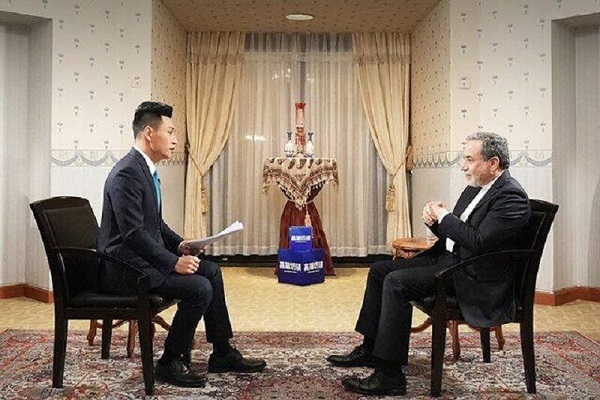
TABNAK, Jan 04: Speaking in an exclusive interview with China's CCTV network, he said, “We are ready to resume negotiations on Iran's nuclear program. We negotiated with the P5+1 countries with good faith for more than 2 years and we finally succeeded in reaching an agreement accepted by the whole world and was praised as an achievement of diplomacy.”
“We put the deal into practice with good faith, but it was the United States that decided to withdraw from it without any reason or justification and caused the current situation.”
However the senior Iranian diplomat reiterated that the country is still ready to resume ‘constructive negotiations without delay’ regarding Iran’s nuclear program with the aim of reaching an agreement.
“Our intended formula about the talks is the same one as of the JCPOA, namely building trust regarding Iran's nuclear program in exchange for the lifting of sanctions.”
Iranian Deputy Foreign Minister Kazem Gharibabadi provided the information to reporters on Wednesday, saying the next round of dialog between Iran and European trio (Britain, Germany and France) would resume in the Swiss city of Geneva on January 13.
He said the country would not speculate concerning the outcome of the talks, noting, “We are not in favor of predictions, and have to wait and see what would happen during the talks.”
The two sides have been conducting on-again, off-again talks since 2018, when the United States illegally and unilaterally left a historic nuclear accord between Iran and world powers under its former president Donald Trump, returning Washington’s unlawful sanctions against the Islamic Republic.
The trio then failed to live up to their promise of bringing Washington back into the deal.
Reacting to the counter-party’s non-commitment to its obligations, Tehran initiated a set of retaliatory nuclear steps, including by activating more advanced centrifuges.
The country has been stepping up the measures in response to the other parties’ continued refusal to uphold their obligations.
Earlier this year, the European states forwarded an anti-Iranian resolution that had been proposed by the US, to the Board of Governors of the International Atomic Energy Agency (IAEA), which was approved by the board.